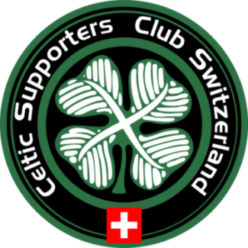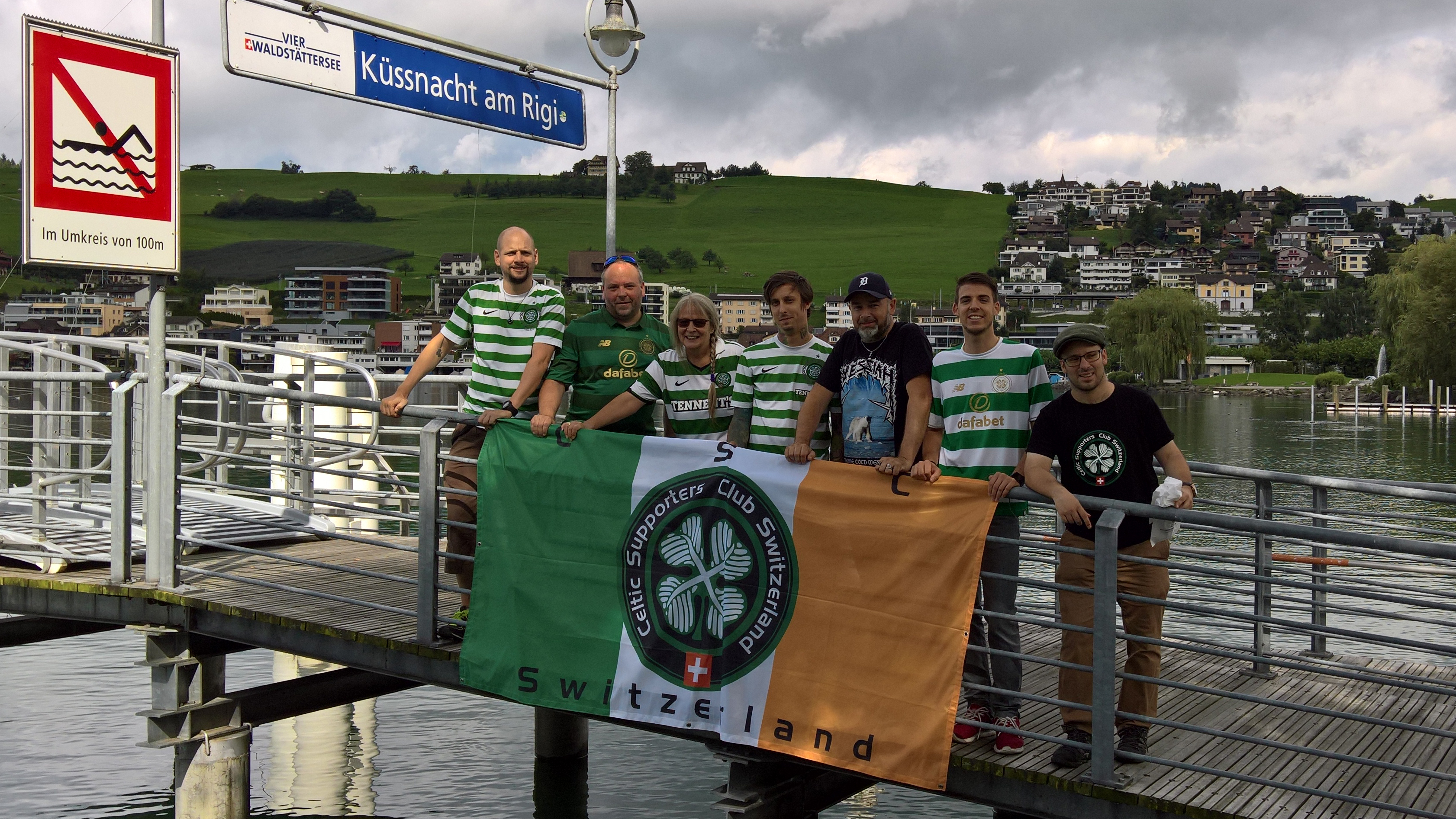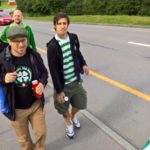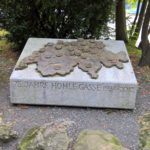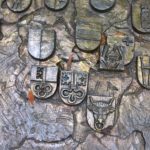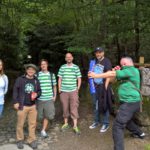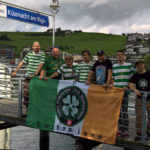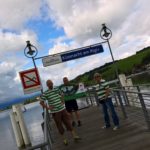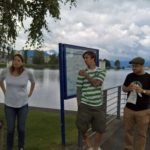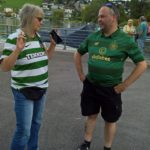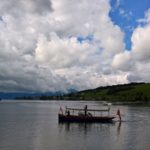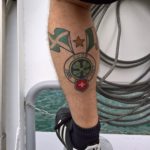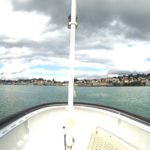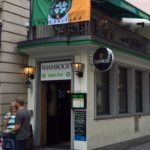We had a lovely day on our season opening hike 2017 in beautiful Central Switzerland. 6 members met in Luzern at the train station at 9am (yes, early start…) and 2 more joined us in Küssnacht am Rigi (sounds a wee bit like Killie, that’s why we did chose it… aye, Heinz was drunk that day…). There we made a short hike to the Hohle Gasse, where Wilhelm Tell shot Vogt Gessler (history lesson can be taken further down on this blog). Back to the village of Küssnacht we boarded on the MS Titlis and did enjoy an hour on lake Vierwaldstätter (for Heinz: Lake Lucerne).
Arrived back in Luzern we went to the Shamrock Pub and set everything up for the Kilmarnock-Celtic match. The match itself wasn’t the best in history, but the focus was set on having a great time together anyway – which was loads of fun.
Here some of the impressions of our Season Opening Hike 2017:
| The legend of William Tell At a time soon after the opening of the Gotthard Pass, when the Habsburg emperors of Vienna sought to control Uri and thus control trans-Alpine trade, a new bailiff, Hermann Gessler, was despatched to Altdorf. The proud mountain folk of Uri had already joined with their Schwyzer and Nidwaldner neighbours at Rütli in pledging to resist the Austrians’ cruel oppression, and when Gessler raised a pole in the central square of Altdorf and perched his hat on the top, commanding all who passed before it to bow in respect, it was the last straw. William Tell, a countryman from nearby Bürglen, either hadn’t heard about Gessler’s command or chose to ignore it; whichever, he walked past the hat without bowing. Gessler seized Tell, who was well known as a marksman, and set him a challenge. He ordered him to shoot an apple off his son’s head with his crossbow; if Tell was successful, he would be released, but if he failed or refused, both he and his son would die. The boy’s hands were tied. Tell put one arrow in his quiver and another in his crossbow, took aim, and shot the apple clean off his son’s head. Gessler was impressed and infuriated – and then asked what the second arrow was for. Tell looked the tyrant in the eye and replied that if the first arrow had struck the child, the second would have been for Gessler. For such impertinence, Tell was arrested and sentenced to lifelong imprisonment in the dungeons of Gessler’s castle at Küssnacht, northeast of Luzern. During the long boat journey a violent storm arose on the lake, and the oarsmen – unfamiliar with the lake – begged with Gessler to release Tell so that he could steer them to safety. Gessler acceded, and Tell cannily manoeuvred the boat close to the shore, then leapt to freedom, landing on a flat rock (the Tellsplatte) and simultaneously pushing the boat back into the stormy waters. Determined to see his task through and use the second arrow, Tell hurried to Küssnacht. As Gessler and his party walked along on a dark lane called Hohlegasse on their way to the castle, Tell leapt out, shot a bolt into the tyrant’s heart and melted back into the woods to return to Uri. His comrades were inspired by Tell’s act of bravery to throw off the yoke of Habsburg oppression in their homeland, and to remain forever free.Do you want to know more about it? Here you will find the whole Saga. |
